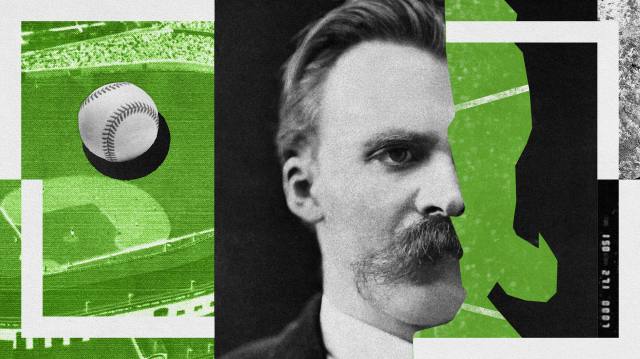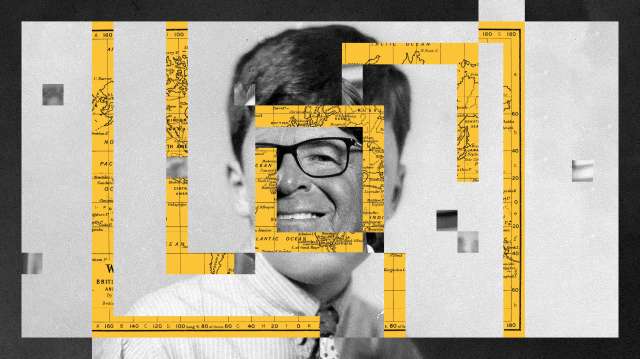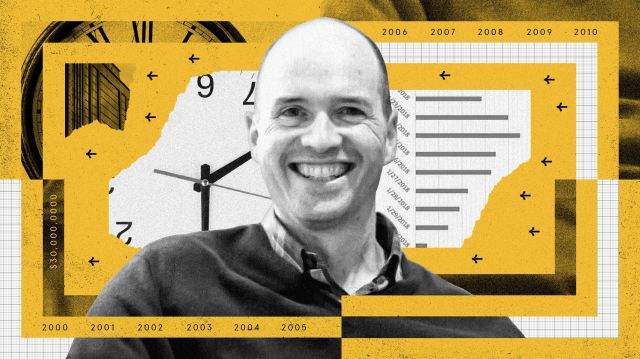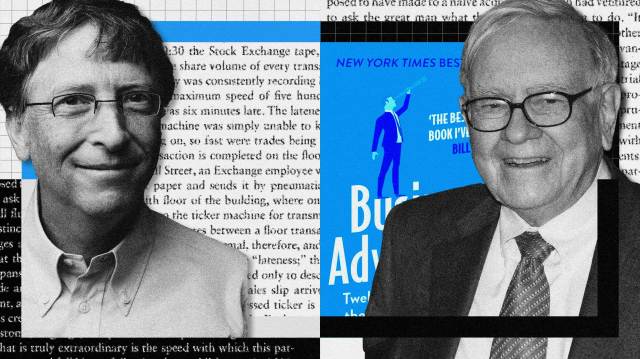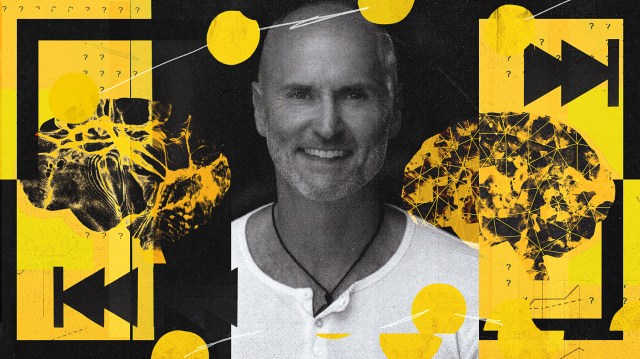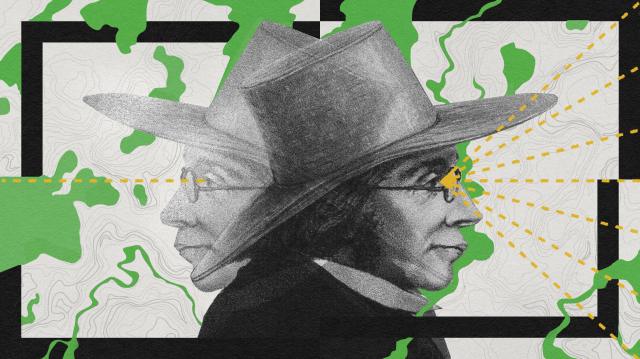Timeless influencer? Why Dale Carnegie has not been axed by hindsight

- How to Win Friends and Influence People was first published in 1936.
- It remains a best-selling book today because author Dale Carnegie included timeless advice.
- To get ahead in life and work, Carnegie says to be appreciative, diplomatic, and genuinely interested in others.
More than 2,000 years ago, the Greek philosopher Aristotle wrote on subjects as wide-ranging as ethics, politics, economics, the arts, and the natural sciences. While some of his ideas are certainly dated, many retain such a timeless quality that they are still studied today.
In fact, philosophy has impressive longevity. Visit any bookstore, and you’ll likely find a philosophy section chockablock with volumes, many several centuries old, wrestling with ideas and predicaments that continue to fascinate the human mind.
Wander over to the self-help section and, well, not so much. The section overflows with catchy titles promoting the latest trends, the hottest takes, and the shiniest of today’s personalities. But a consequence of that faddish focus is a collection of books with the shelf life of bargain bin dairy products. A self-help book is lucky if it stays relevant for a few hundred days — to say nothing of a hundred years.
There are exceptions though, and one of them is Dale Carnegie’s How to Win Friends and Influence People. First published in 1936, How to Win Friends has remained in print ever since and sold over 30 million copies. That makes it one of the bestselling books of all time, and while it has been updated lightly in the intervening years, contemporary editions remain remarkably faithful to Carnegie’s original message.
What did Carnegie do differently? After all, it’s not as though he invented the self-help book. That business was already booming by the 19th century, yet P.T. Barnum’s The Art of Money Getting (1880) never became the cultural touchstone that How to Win Friends did.

In part, How to Win Friends combined the same ingredients of success that any classic does. Those are: talented people behind it, good word of mouth, a whole lot of luck, and a better title than Barnum’s book. But like Aristotle, one special ingredient Carnegie brought was an enduring take on a subject that humans find infinitely fascinating and worth learning about.
Here are three lessons from How to Win Friends that have stood the test of time:
1. Be appreciative
What drove Charles Dickens to write novels, Amelia Earhart to fly across the Atlantic, Marie Curie to conduct pioneering research, and John D. Rockefeller to amass millions? Carnegie’s answer: the desire to be appreciated and feel important.
However, while we recognize this need in ourselves, we seldom do what we can to satisfy it in others. Instead, we tend to do the opposite. We’re quick to criticize ideas we don’t like and tear down people on the off-chance it will make us seem powerful and influential.
That’s a shame because as Carnegie points out, “If some people are so hungry for those feelings of importance and attention […], imagine what miracle you and I can achieve by giving people honest appreciation this side of sanity.”
He then offers famed steel magnate Charles M. Schwab as an exemplar of this tenet. In 1921, Schwab was handpicked to be the first president of the United States Steel Company by Andrew Carnegie (no relation to Dale — although Dale changed the spelling of his original family name, Carnagey, in honor of Andrew).
Schwab’s qualifications for such a prestigious position? It wasn’t that he was a business genius, nor did he know more about steel than anyone else. His secret was simply that he took the time to appreciate his people for their talents, hard work, and dedication. And he did so often and vociferously.
Schwab said: “I consider my ability to arouse enthusiasm among my people the greatest asset I possess, and the way to develop the best that is in a person is by appreciation and encouragement.” [As quoted in How to Win Friends.]
That said, Carnegie warns that we must understand the difference between appreciation and flattery. Lucky for us, it’s a simple distinction to make. As Carnegie writes, “One is sincere, the other insincere. One comes from the heart out, the other from the teeth out. One is unselfish, the other selfish. One is universally admired, the other universally condemned.”
Care to guess which is which?
2. Be genuinely interested
Appreciation is much adored, but to maintain rich and lasting relationships, you’ll also need to be genuinely interested in them. Carnegie puts it succinctly: “You can make more friends in two months by becoming interested in people than you can in two years by trying to get people interested in you.”
Unfortunately, our brains are wired to do the opposite. Carnegie cites a study of his day that analyzed 500 telephone conversations. It found that the personal pronoun I was used 3,900 times across them. More modern research shows that on average, people spend 60% of their conversational airtime talking about themselves — a number that leaps to 80% on social media platforms.
Why do we spend so much time being self-centered in conversations? The research further suggests that we do it simply because we like how it feels. But just because we like to feel important and be the center of attention, doesn’t mean we can’t take equal — or potentially greater — pleasure in others. It just takes effort, a willingness to listen, and getting into the habit of asking questions.
Carnegie’s exemplar for this tenet is Theodore Roosevelt, 26th President of the United States. To this day, Roosevelt is fondly remembered as a great leader, routinely ranking in the top five of various historian surveys of US presidents. One reason for this was the man’s effortless sociability and his genuine interest in other people.
In a telling example, cited by Carnegie, Roosevelt’s valet’s wife once mentioned she had never seen a bobwhite (a species of quail). Roosevelt spoke with her about her interest in the bird, and for most people, that would have been the end of the conversation. But some time later, Roosevelt called the couple at their cottage to inform them that he had spotted a bobwhite on the grounds and where she could find it.
“Little things like that were so characteristic of him,” James Amos, the valet, wrote in his memoir.
3. Be diplomatic
When we encounter someone spouting misinformation or a disagreeable opinion, our initial impulse is to tell them they’re wrong. As the theory goes, they will be happy to understand the error of their ways and will change those ways to be more in the light of truth. If not now, then in time.
Beautiful theory, but as we all know, the reality is quite a different outcome.
“You can tell people they are wrong by a look or an intonation or a gesture just as eloquently as you can in words — and if you tell them they are wrong, do you make them want to agree with you? Never!” Carnegie reminds us.
His historic example this time is Horace Greeley, America’s famed 19th-century editor. In a famous open letter to Abraham Lincoln, Greeley told the president that he and others were “sorely disappointed and deeply pained” at the administration’s policies. He harshly criticized Lincoln for being too compromising with the border states and not seizing their property, including slaves, throughout the Civil War.
In hindsight, Greeley made eloquently sound and morally admirable points. But did he change Lincoln’s mind? Not at all. Right up until his assassination in 1865, Lincoln stuck to his policies. As he wrote in his own open letter to Greeley: “I shall do less whenever I shall believe what I am doing hurts the cause, and I shall do more whenever I shall believe doing more will help the cause.”
Carnegie suggests that Greeley may have gotten farther if he had taken a page from another historical figure: Benjamin Franklin. Rather than argue directly with people, Franklin learned to first listen and show respect. He asked questions and always pointed out places where he and the others agreed, and applauded those aspects of the other person or their argument he found praiseworthy.
That doesn’t mean Franklin kowtowed to all misinformation or bad opinions. Far from it. But he only disagreed after he took those steps. He also removed phrases such as “certainly” and “undoubtedly” and replaced them with the more diplomatic “I apprehend” or “it appears to me at present,” phrases that left all participants room for conversation and learning.
“In other words, don’t argue with your customer or your spouse or your adversary. Don’t tell them they are wrong, don’t get them stirred up. Use a little diplomacy,” Carnegie concludes.
Timeless advice (updated for the next generation)
You may have noticed a trend in the timeless advice above: Each one has its roots in a historic figure or pearl of wisdom. That’s not to say Carnegie was a plagiarist. Rather, his contribution was showing how those roots extended into the context of people’s (then) modern lives and work. The same can be said of How to Win Friends’ influence on self-help books today.
“My father’s principles, so in tune with what people wanted and needed, were quickly embraced by the business leaders of the day. In today’s world, they are being presented as ‘cutting edge’ strategies by Human Resources and corporate leadership programs,” Carnegie’s daughter, Donna, writes in the preface to the latest edition.
And while Carnegie didn’t quote Aristotle directly, he certainly could have as the two align in their view on the importance of sincerity. In his Nicomachean Ethics, the Greek philosopher writes that truthfulness is the moderation between “boastfulness and irony.” This pairs nicely with Carnegie’s call to avoid dishonest flattery or fake interest in others.
Sure, some of his language may be a bit dated and his examples may not cross cultures readily. But what Carnegie recognized, after his years of teaching and learning from others, is that whether you’re an ancient Greek philosopher, a historic U.S. president, a successful business leader, or just a guy who wants to be well-liked, we’re all people with similar needs and desires. And the person who will win friends and influence will be the one who helps other people meet those needs.

